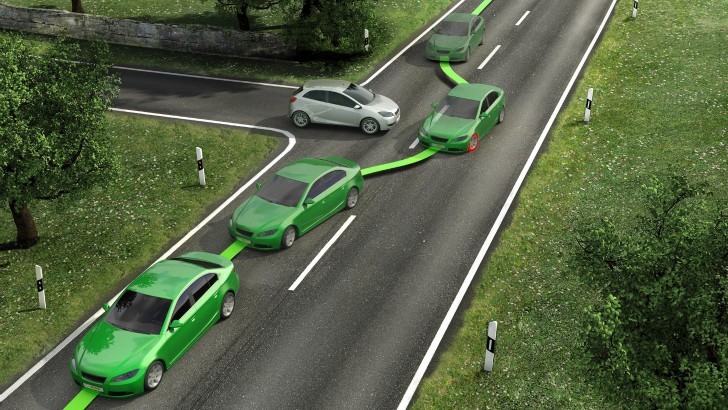Between 1987 and 1992, engineering big shots Bosch and Continental joined forces with BMW and Mercedes-Benz to co-develop a vehicle safety feature called Elektronisches Stabilitätsprogramm.
22 years since then, the European Union decided that all new cars and light commercial vehicles will need to come equipped as standard with ESP.
Even though Bosch started assembling electronic stability program modules for passenger vehicles since 1995, only 84 percent of new cars sold in Europe in 2014 came with the life-saving feature. Worringly, the global figure stands at 59 percent.
That's why the anti-skid system will soon become a universal standard for carmakers that operate in this part of the world. More specifically, November 1st will see all newly registered passenger cars and LCVs with a gross weight of up to 3.5 tons equipped with electronic stability control for very obvious reasons.
At that moment in time, ESP was only installed in an estimated 40 percent of vehicles. But the facts are there and you can't diss this system as being some sort of over intrusive electronic nanny - since 1995, this ESP thingy prevented 190,000 crashes, saving more than 6,000 lives across the European Union.
Even though the US, Canada and the EU are now covered, there's something worrying that needs to be mentioned. Australia and Israel both made ESP mandatory recently, but some places around the world haven't, most notably Japan, Russia, South Korea and Turkey. On an ending note, technology-shy readers may want to play the demonstration video below to find out why ESP is such an important feature.
That's why the anti-skid system will soon become a universal standard for carmakers that operate in this part of the world. More specifically, November 1st will see all newly registered passenger cars and LCVs with a gross weight of up to 3.5 tons equipped with electronic stability control for very obvious reasons.
ESP is mandatory in the US and Canada since 2011
According to a recent study, that simple yet very effective ESP system is the second biggest life saver after fastening your seat belt. This is not a joke - it's more important than the airbag, the study highlights. In 2011 alone, cars fitted with electronic stability program modules prevented more than 33,000 vehicle crashes involving injury and saved more than 1,000 lives in 25 EU member states.At that moment in time, ESP was only installed in an estimated 40 percent of vehicles. But the facts are there and you can't diss this system as being some sort of over intrusive electronic nanny - since 1995, this ESP thingy prevented 190,000 crashes, saving more than 6,000 lives across the European Union.
Even though the US, Canada and the EU are now covered, there's something worrying that needs to be mentioned. Australia and Israel both made ESP mandatory recently, but some places around the world haven't, most notably Japan, Russia, South Korea and Turkey. On an ending note, technology-shy readers may want to play the demonstration video below to find out why ESP is such an important feature.


